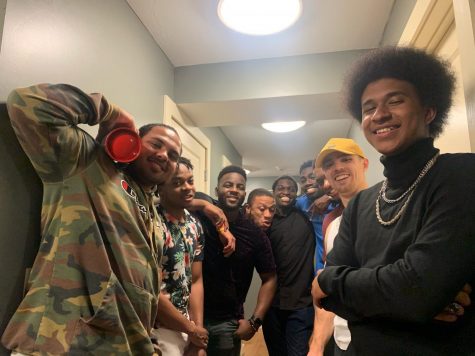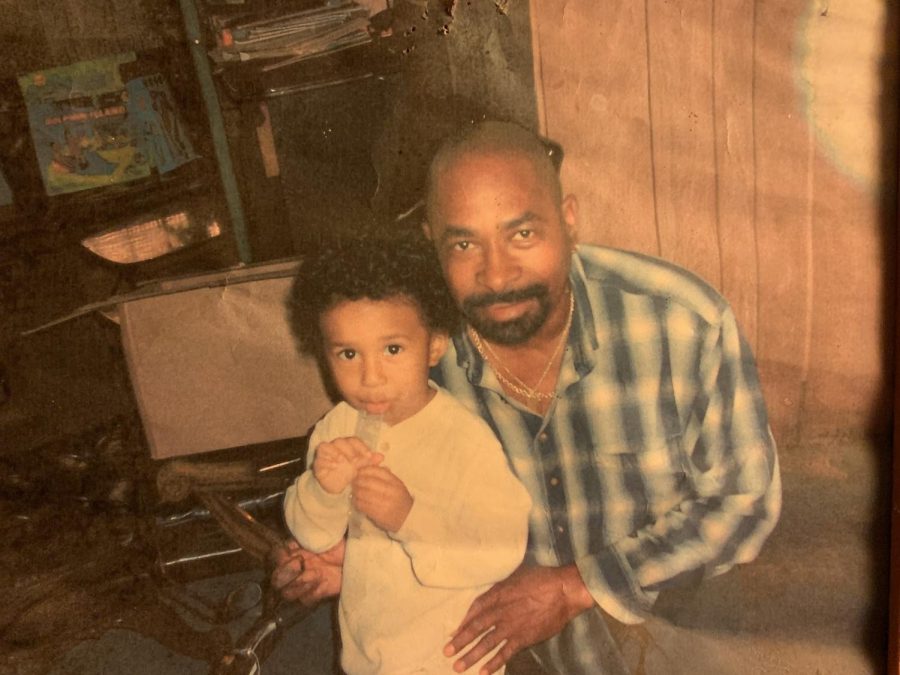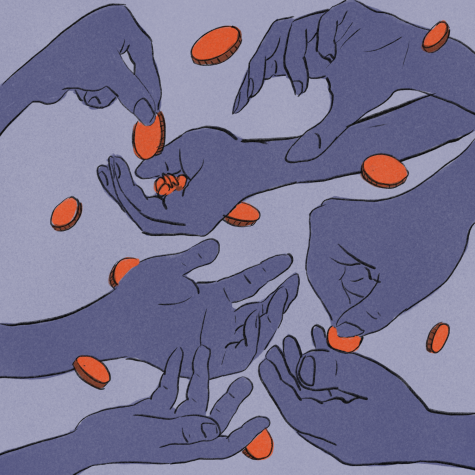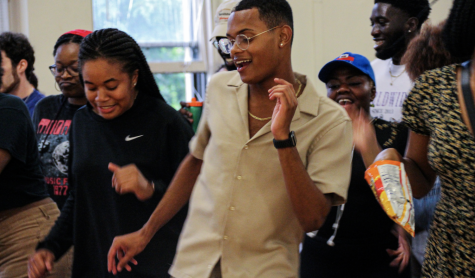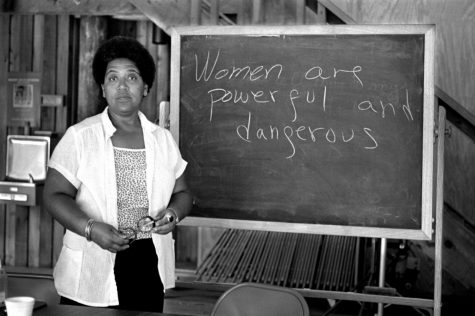A Call For Devotion To Black Students
Growing up as a Black person in Englewood, Chicago, I’ve always been aware of how people perceive me, ’cause if I wasn’t, it would cost me my life. Because of this, I always think about how I conduct myself in white spaces. I’m an extrovert and try to make any space that I’m in inclusive for everyone. Despite this, I feel nervous about entering new spaces, because I don’t know the degree to which non-Black people support Black people.
Throughout my first year at Oberlin, I was greatly supported by the Afrikan Heritage House, the Africana Studies department, and by my Posse Studies Program cohort. But the work of helping Black students find their safe spaces and support systems is too often placed onto the backs of older Black students, faculty, and professors. I can easily say that A-House is the best support system and resource that any Black student can have at Oberlin. The big sibling program that paired first years living in A-House with Black third- and fourth-year students helped me immensely, along with the support from Director and Faculty in Residence of Afrikan Heritage House and Professor of Africana Studies Candice Raynor.
This support proved invaluable when my grandfather passed away on Sept. 28, 2020. I have lived with my grandfather, grandmother, mom, and four siblings for my whole life. My grandfather was one of the people that I loved the most in this world. A week before he passed, I went back home to be with him and my family. I told my friends and Candice that I’d be going home, and I didn’t know if I’d come back that semester. The care and support that I received from my peers during this time proved that I made the right choice to live in A-House. During such a terrible time, I found comfort and support in people that I’d known for a very short time. My grandfather, Van Hudson, was the brightest light in my world, and we both shared a love that will live on through my actions for my whole life. He made it his life’s purpose to give to others, build community, and share his love. All that I do is aimed at living up to this purpose, and I can easily say that the communities I have found at Oberlin help me do this.
I decided, very regrettably, to return a few days after my grandfather passed. As soon as I returned to campus, I was quarantined in Fairchild House for 10 days. These 10 days were easily some of the worst in my life. My grandfather had just passed, but as per usual, I was expected to be my best. I had to take exams and makeup assignments, but I couldn’t see anyone. All I had was a virtual connection to the people who supported me before. Almost every day that I spent in Fairchild house, I’d fall asleep and wake up crying.
No matter how prepared you are, college — especially college in a pandemic — will always present new challenges. For many students, these challenges include an increase in academic difficulty or living on your own for the first time. I wish these challenges were the only ones Black students faced at school, but across the country, we are exhausted from having to cautiously navigate the spaces that we occupy in order to ensure our safety. Our challenges in life aren’t as simple as having to work hard to ace a class. The question of doing well in class turns into, “Does my professor support Black students? Do they understand the trials and tribulations that we go through?” Feeling unsafe in my classrooms, my car, and in every other space is destructive for my health. White people, you must understand that while your biggest complaint may be that your room is hot or your shower is cold, Black students’ biggest concerns exist in a different space, a space which requires different attention, and without that attention the consequences can be fatal to us. COVID-19 has deeply affected everyone, but articles, such as Reggie Goudeau’s piece for the Review – Obie Safe Policy Enforcement Harms Black and Brown Students – show how Black students have faced more complex problems because of COVID-19. These concerns are precisely why programs that support Black students are so important.
It’s tiring to live an existence that is consistently challenged, and it is simply annoying that Black students can really only seek help from others who’ve experienced similar things. With historic racism and white supremacy causing the murders of our kinfolk, our only problems aren’t just about living in a new dorm or meeting with professors. These assaults on our humanity affect our mental and physical health, and they are seen as too ordinary for us to get real help for them. As students of Oberlin College, we are expected to live up to the College’s ideals of academic rigor, but the support that we receive in return is limited. It’s not wrong for the College to expect the best from us, but it is wrong for the College to expect these things from its students without truly supporting them, whether they are on campus or at home.
Issues that affect Black students must be taken seriously by other people at Oberlin and have to be understood on a deeper level. We need more than platitudes like, “We understand you and we stand with you,” and black squares on Instagram. Despite all that I mentioned, I finished my first year with a good academic standing, worked two jobs, was the only first-year elected to Student Senate in fall 2020, will be Senate’s vice president of academic affairs next year, and I’ve joined OSteel! There are challenges that I still face at Oberlin, but I have triumphed over many. Still, there must be continuous work and support devoted to Black students. We do so many great things, but much of the support for us only comes from people who have been through what we have.
